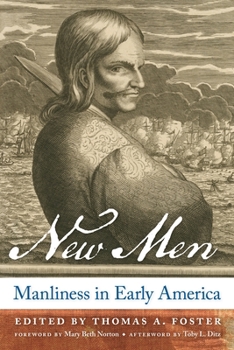New Men: Manliness in Early America
Select Format
Select Condition 
Book Overview
In 1782, J. Hector St. John de Cr vecoeur wrote, "What then, is the American, this new man? He is an American, who, leaving behind him all his ancient prejudices and manners, receives new ones from the new mode of life he has embraced." In casting aside their European mores, these pioneers, de Cr vecoeur implied, were the very embodiment of a new culture, society, economy, and political system. But to what extent did manliness shape early America's...
Format:Paperback
Language:English
ISBN:0814727816
ISBN13:9780814727812
Release Date:January 2011
Publisher:New York University Press
Length:292 Pages
Weight:0.95 lbs.
Dimensions:0.7" x 6.6" x 9.0"
Customer Reviews
0 rating





